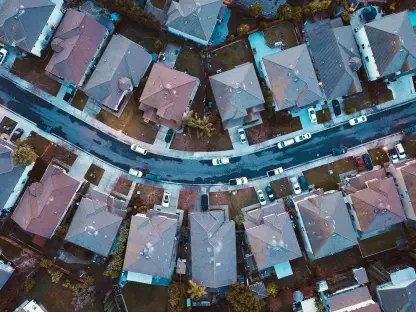In an era of increasing environmental awareness and the pursuit of sustainable alternatives, the integration of recycled materials in diverse industries has gained substantial significance. Recycled resin, specifically in the film production sector, is emerging as a promising solution that aligns with the imperative of reducing carbon footprints and preserving natural resources. This article delves into the current state and advancements in recycled resin use within film production, exploring data, market trends, expert insights, and the potential future trajectory of this evolving field.
Current State and Growth of Recycled Resin in Film Production
Market Data and Adoption Trends
The market for recycled resin within film production has witnessed notable growth, driven by the need for sustainable practices across industries. Over recent years, the incorporation of recycled materials in biaxially oriented polypropylene (BOPP) films has seen marked advancement, demonstrated by PureCycle Technologies Inc.’s innovations with their PureFive resin. This shift reflects broader market dynamics where an increasing number of manufacturers opt for recycled content to meet both consumer demand and regulatory pressures. Adoption statistics highlight a rise in the use of recycled resins, with projections indicating sustained growth as material performance improves and consumer preference shifts toward environmentally responsible products.
Real-World Applications and Innovations
Several prominent companies are leading the charge in implementing recycled resins in film production. PureCycle Technologies, in collaboration with Brückner Maschinenbau GmbH, has been at the forefront of integrating PureFive resin into BOPP film. Trials conducted with varying blends from PureCycle’s facility in Ohio have demonstrated recycled resin’s comparative viability against virgin polypropylene in various quality benchmarks. Initial findings are promising, paving the way for PureFive resin’s adoption as a viable alternative in flexible packaging solutions, one of the most significant segments in polypropylene applications. These developments underscore the innovative strides companies are making in propelling the industry toward sustainable solutions.
Expert Insights and Industry Perspectives
Industry experts recognize the strategic relevance of recycled resins amid growing environmental concerns and economic advantages. Professionals in the field emphasize that technologies like PureFive resin illustrate a critical shift in meeting stringent quality standards while addressing sustainability goals. Challenges such as ensuring consistent purity and overcoming processing hurdles remain critical, yet experts are optimistic about overcoming these obstacles with technological advancements. Thought leaders highlight the collaborative efforts required across sectors to foster systemic change—a key in driving recycling innovations and achieving industry-wide adoption.
Future Directions and Implications
The trajectory of recycled resin use in film production suggests a trend that could redefine industry standards. Projections indicate an increase in innovative recycling processes, driven by ongoing research and development. As technologies like PureCycle’s resins continue to mature, the potential benefits—reduced dependency on virgin materials, decreased environmental impact, and enhanced circularity—become increasingly apparent. However, challenges such as ensuring economic viability and consistent resin quality demand attention. Looking ahead, embracing recycled resins may significantly disrupt traditional production processes, necessitating broader industry collaboration to fully realize its potential and mitigate environmental repercussions.
Conclusion
The discussion around recycled resin in film production illustrates a forward-looking approach to addressing environmental challenges while maintaining industry viability. The promising developments in integrating recycled materials suggest a significant shift from traditional production practices toward sustainable alternatives. As global demand for greener solutions intensifies, stakeholders must remain committed to advancing recycling technologies and advocating for regulatory frameworks that support sustainable initiatives. Embracing these changes could pave the way for a more sustainable and resilient future in film production, marking a pivotal moment in the evolution of industrial practices.









